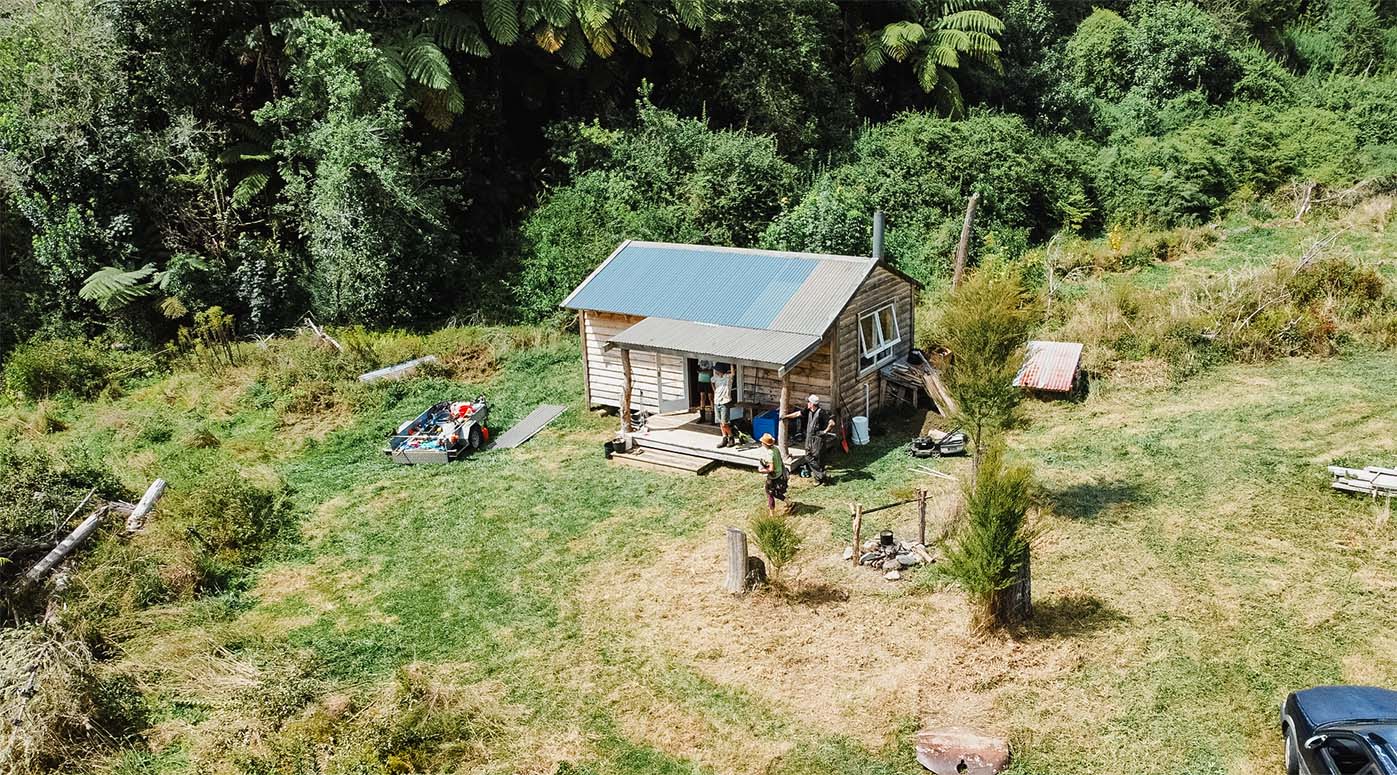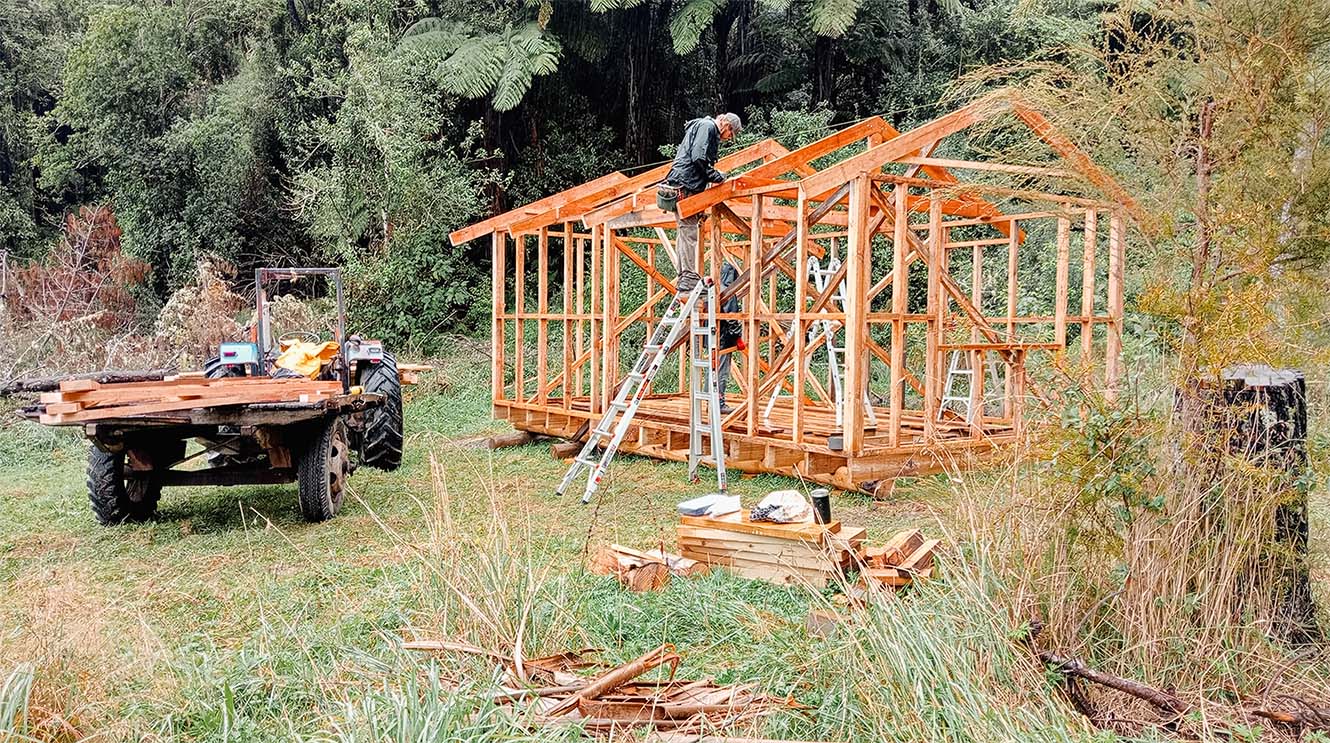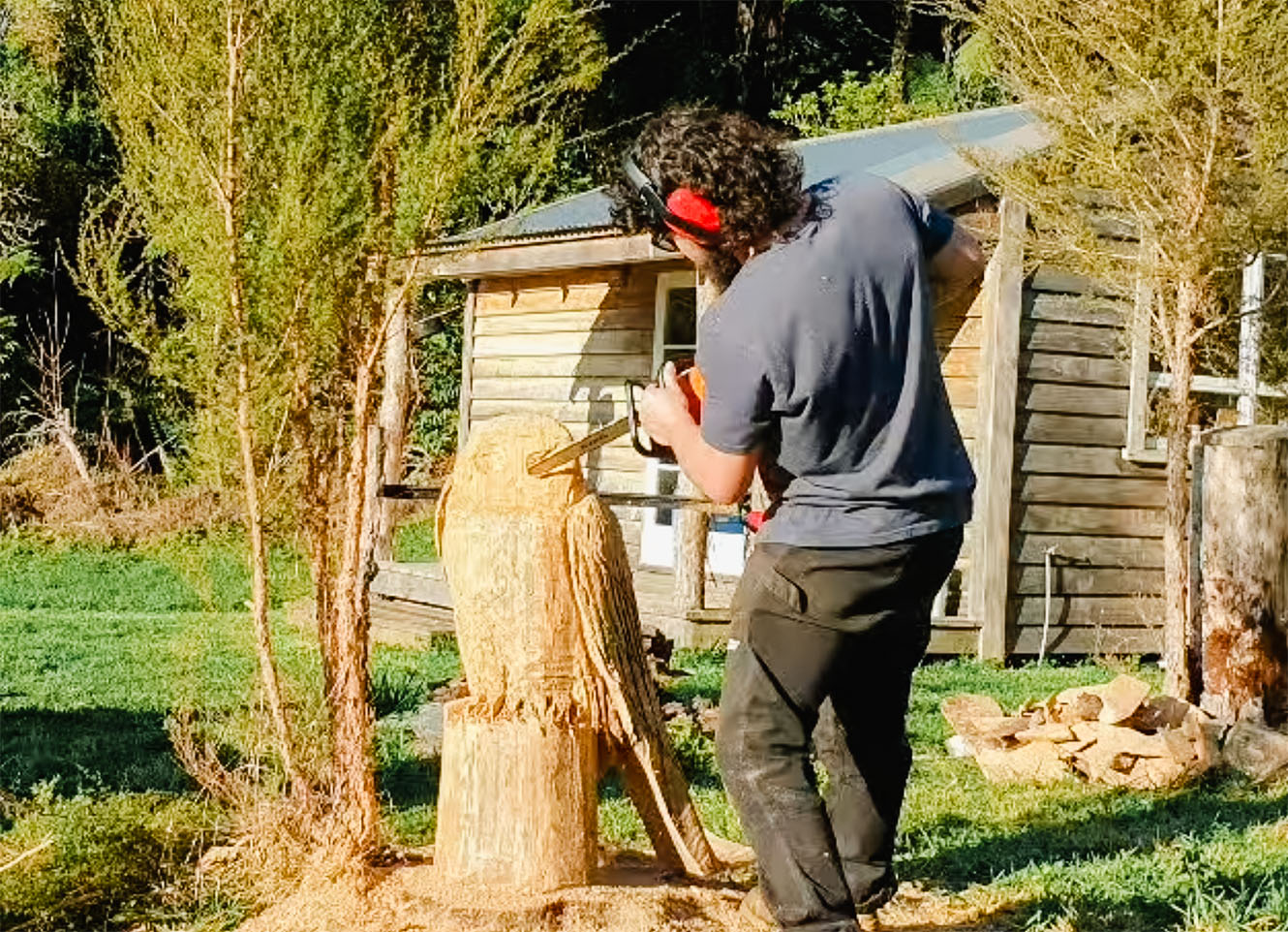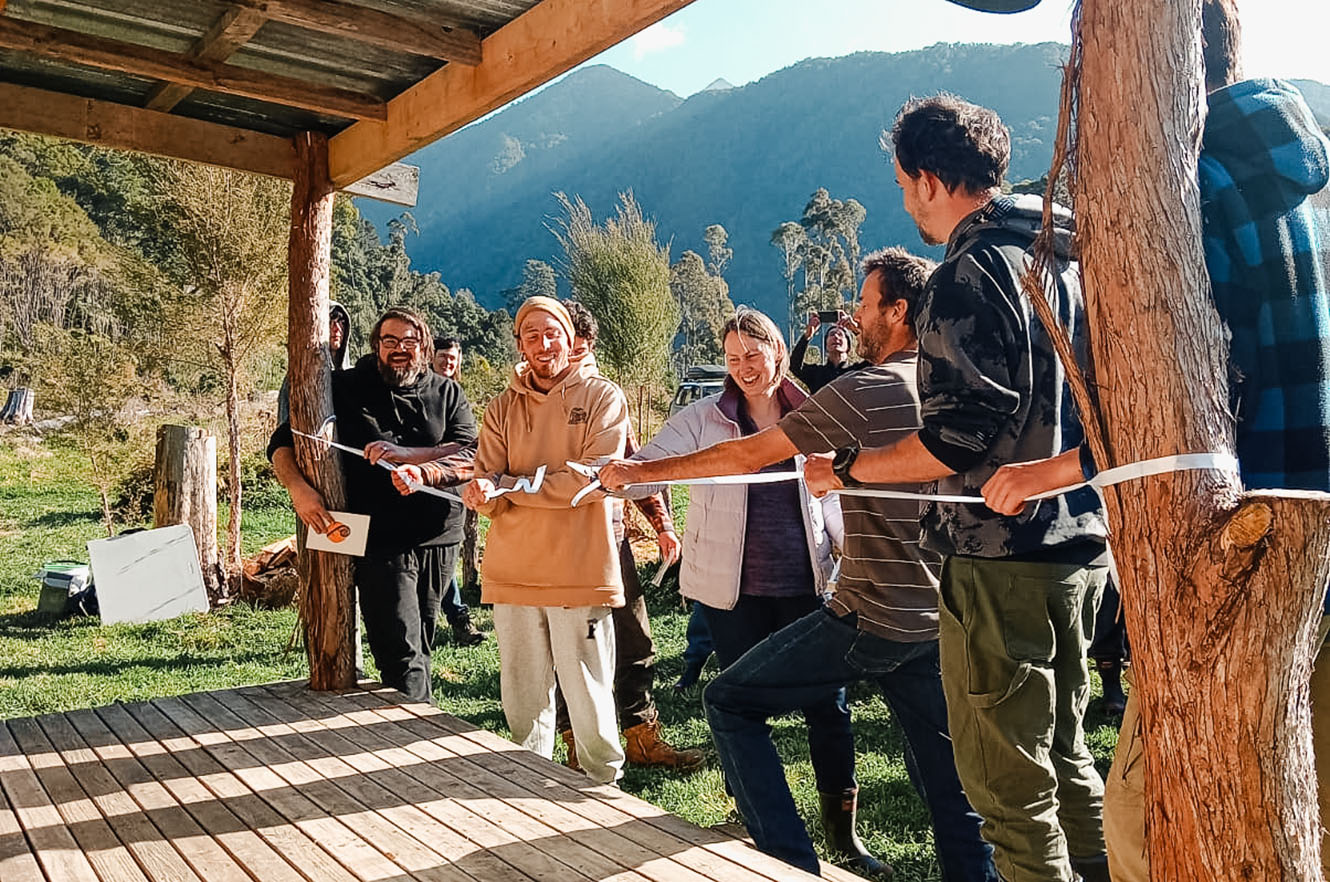
It was Spanky Moore who had the idea for it originally. We had a coffee and he talked about having a place like this – somewhere to get away and be with God, away from the busyness of life. To pray, to ask big questions, discern decisions, or rest and have a Sabbath. That’s where the dream came from.
And then for the construction of it, we wanted to use timber and resources off the land, and have people come in and volunteer their time to contribute to the building.
Normally you go and buy the timber you need, and get more if necessary. But we milled the timber off our own trees around the cabin and others off the farm. So we had to work out how much timber we needed to set aside to season, which ended up being around a year before we actually started building.

Relying on volunteers to build the cabin meant that it went in fits and starts. We’d do a few days when people came to visit, then it would sit for a few months until someone else was about. It was a bit of an exercise in patience for me – you can’t expect voluntary work to happen two months straight.
A neighbour who loves growing trees from seed told me a while back to let him know if we needed to plant anything. When we started building the Ruru cabin, I mentioned we had a space that needed planting, and he came and donated all the trees, planted them, and continues to look after them. The guy who milled the timber also lives nearby.
We’ve had such a range of people contribute, with different expertise. Quite a number of builders gave their time, and a lot came back multiple times. Dozens of people, really, have had input one way or another.
There’s a chainsaw carving of a ruru right outside, by a guy we met through someone who lives on the land here now. He’s recently connected to the church and we’ve had a bit to do with him. He was over for dinner when we found out that he did these chainsaw carvings. When I mentioned giving it a go here, he was keen to do it. So he did most of it on Friday, and left some to do at the opening of the cabin on Saturday. He also did a kārearea for us on the same day. He goes by Chain of Creation Carving.

It’s removed from our main accommodation – about 400 metres away. You can drive there, but it feels secluded. It’s up under the native bush on the hill. So it’s a space to retreat away, to remove yourself from the world a bit more – without having to tramp four hours.
It’s got eight beds in a DOC hut style – two big platform bunks: four on top, and split underneath with two and two. It’s got a fire, a little kitchen, and a compost toilet. It’s pretty well set up and things will be added over time – maybe a shower in future.
The opening went well. We had this year’s Kākano group, and some people from church, especially those involved in the build. It was good to have an official line in the sand – say it’s now officially open and set aside for God’s use. We even cut a ribbon.

Spanky said something interesting – that people might not realise they need a place like this, but now that it’s here, we might see how much it’s needed. We didn’t survey people and ask if they’d use the Ruru cabin.
We provide the space and facility here at Mamaku Grove, and then it’s largely up to the diocese to start using it as a resource. We just open the doors and say, “Hey, we’re here. Come when you want.”
Check out other articles in the
series below.
More articles in the
series are to come.
We have invited these writers to share their experiences, ideas and opinions in the hope that these will provoke thought, challenge you to go deeper and inspire you to put your faith into action. These articles should not be taken as the official view of the Nelson Diocese on any particular matter.

It was Spanky Moore who had the idea for it originally. We had a coffee and he talked about having a place like this – somewhere to get away and be with God, away from the busyness of life. To pray, to ask big questions, discern decisions, or rest and have a Sabbath. That’s where the dream came from.
And then for the construction of it, we wanted to use timber and resources off the land, and have people come in and volunteer their time to contribute to the building.
Normally you go and buy the timber you need, and get more if necessary. But we milled the timber off our own trees around the cabin and others off the farm. So we had to work out how much timber we needed to set aside to season, which ended up being around a year before we actually started building.

Relying on volunteers to build the cabin meant that it went in fits and starts. We’d do a few days when people came to visit, then it would sit for a few months until someone else was about. It was a bit of an exercise in patience for me – you can’t expect voluntary work to happen two months straight.
A neighbour who loves growing trees from seed told me a while back to let him know if we needed to plant anything. When we started building the Ruru cabin, I mentioned we had a space that needed planting, and he came and donated all the trees, planted them, and continues to look after them. The guy who milled the timber also lives nearby.
We’ve had such a range of people contribute, with different expertise. Quite a number of builders gave their time, and a lot came back multiple times. Dozens of people, really, have had input one way or another.
There’s a chainsaw carving of a ruru right outside, by a guy we met through someone who lives on the land here now. He’s recently connected to the church and we’ve had a bit to do with him. He was over for dinner when we found out that he did these chainsaw carvings. When I mentioned giving it a go here, he was keen to do it. So he did most of it on Friday, and left some to do at the opening of the cabin on Saturday. He also did a kārearea for us on the same day. He goes by Chain of Creation Carving.

It’s removed from our main accommodation – about 400 metres away. You can drive there, but it feels secluded. It’s up under the native bush on the hill. So it’s a space to retreat away, to remove yourself from the world a bit more – without having to tramp four hours.
It’s got eight beds in a DOC hut style – two big platform bunks: four on top, and split underneath with two and two. It’s got a fire, a little kitchen, and a compost toilet. It’s pretty well set up and things will be added over time – maybe a shower in future.
The opening went well. We had this year’s Kākano group, and some people from church, especially those involved in the build. It was good to have an official line in the sand – say it’s now officially open and set aside for God’s use. We even cut a ribbon.

Spanky said something interesting – that people might not realise they need a place like this, but now that it’s here, we might see how much it’s needed. We didn’t survey people and ask if they’d use the Ruru cabin.
We provide the space and facility here at Mamaku Grove, and then it’s largely up to the diocese to start using it as a resource. We just open the doors and say, “Hey, we’re here. Come when you want.”
Check out other articles in the
series below.
More articles in the
series are to come.